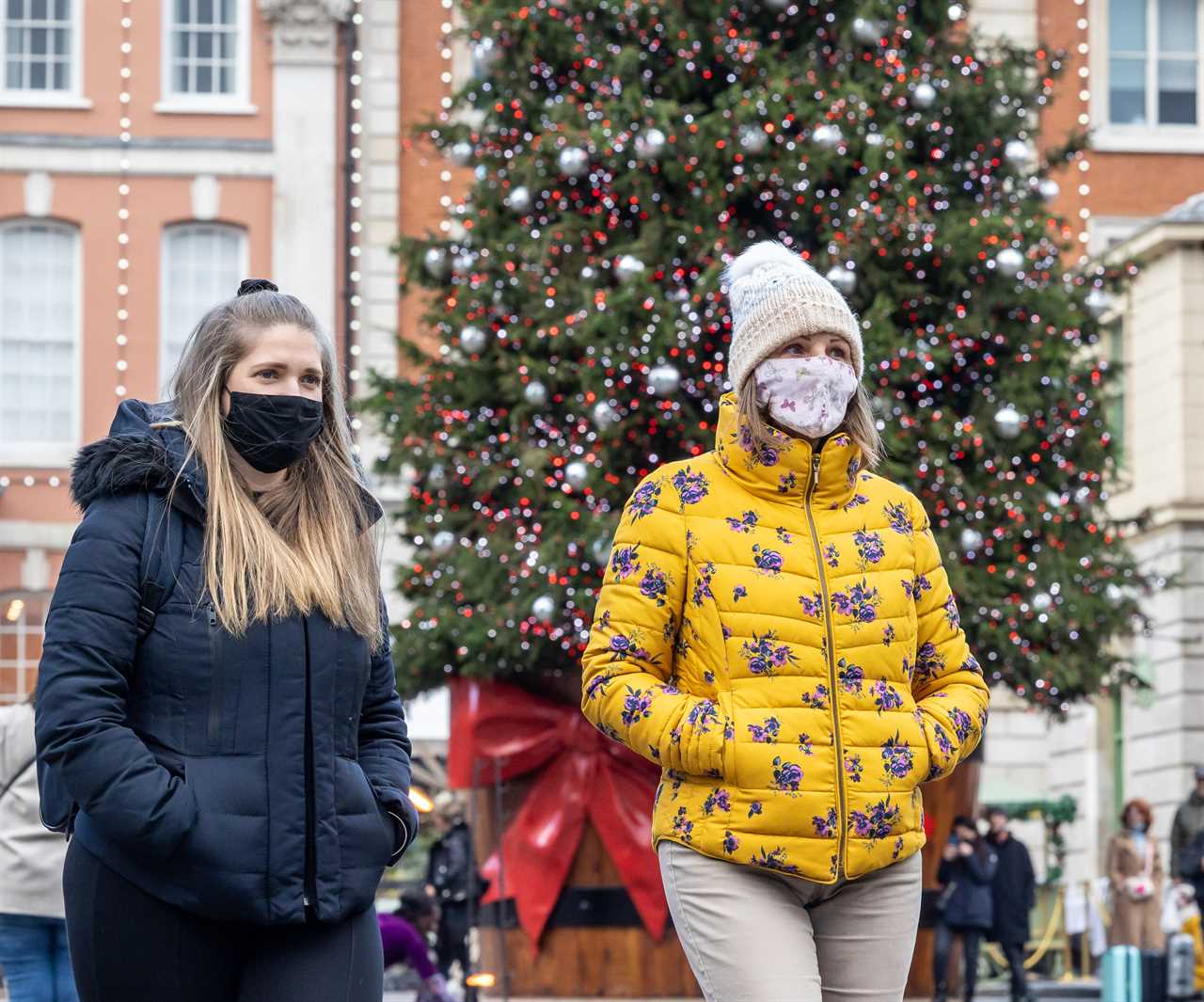TEN new cases of the super-strain Omicron Covid variant have been found in the UK, taking the total to 42.
Cases are widespread and it’s not yet clear if they are related to travel from African nations that first spotted the strain.

Targeted testing is currently being rolled out in places where the positive cases were likely to have been infectious.
Cases have been detected in the East Midlands, East of England, London, South East and North West.
Dr Jenny Harries, Chief Executive of UKHSA, said it is “very likely” more cases of the highly mutated strain Omicron will emerge.
Health bosses are trying to keep a lid on strain by telling contacts of the infected people to self-isolate.
They are looking to see if there are any links to travel to South Africa – without which suggests the variant is already spreading in the community.
The Government’s strategy to tackle Omicron is a huge booster campaign to give people maximum immunity this winter.
Dr Harries said: “We are continuing our efforts to understand the effect of this variant on transmissibility, severe disease, mortality, antibody response and vaccine efficacy.
“Please make sure to wear a mask in line with government guidance, including on public transport and in shops, to help break the chains of transmission and slow the spread of this new variant.
“It is very likely that we will find more cases over the coming days as we are seeing in other countries globally and as we increase case detection through focused contact tracing.
“That’s why it’s critical that anyone with COVID-19 symptoms isolates and gets a PCR test immediately.”
Dr Harries said vaccination was “critical” to bolster defences against the variant.
The top-up jabs will be given to all adults over the age of 18 – eligible at least three months after their second dose – before the end of January.
Dr Harries said: “Please take up this offer as soon as you are eligible to protect yourself, your families and your communities.”
It comes after a new drug was today approved to help against the Covid fight.
Xevudy (Sotrovimab) was given the green light as it’s been deemed safe and effective at reducing the risk of hospitalisation and death in Covid patients.
The antibody treatment is most effective during the early stages of coronavirus illness – and should be administered within five days of showing symptoms.
Clinical trials showed the drug was able to reduce the risk of hospitalisation and death by 79 per cent among high-risk adults.
The ground breaking drug was approved by the Medicines and Healthcare products Regulatory Agency (MHRA) this morning.
The approval comes as ten more cases of the Omicron variant were detected in the UK yesterday.
There are early indications from scientists that the drug “retains activity against key mutations”, experts at manufacturer GlaxoSmithKline said.
It’s too early to know whether or not the Omicron variant has any impact on how effective the newly approved drug will be.
Health Secretary Sajid Javid warned there is “no guarantee” that a fresh lockdown won’t be needed ahead of Christmas, but that the likelihood was “very, very, very low”.
The Prime Minister Boris Johnson has said he considers the measures of mandatory face coverings balanced, given there is still a lot to learn about Omicron.
Scientists believe Omicron may spread faster than Delta, which is dominant in the UK.
Sage said it is “highly likely” that Omicron can escape immunity caused by previous infection or vaccination “to some extent”.
Manufacturers are racing to find out more about the protection their jabs offer against the strain, whcih scientists have labelled as “deeply worrying”.
Today Israeli health chiefs claimed that the Pfizer Covid vaccine booster and second jab, if had within the past six months, should give high protection against Omicron.






